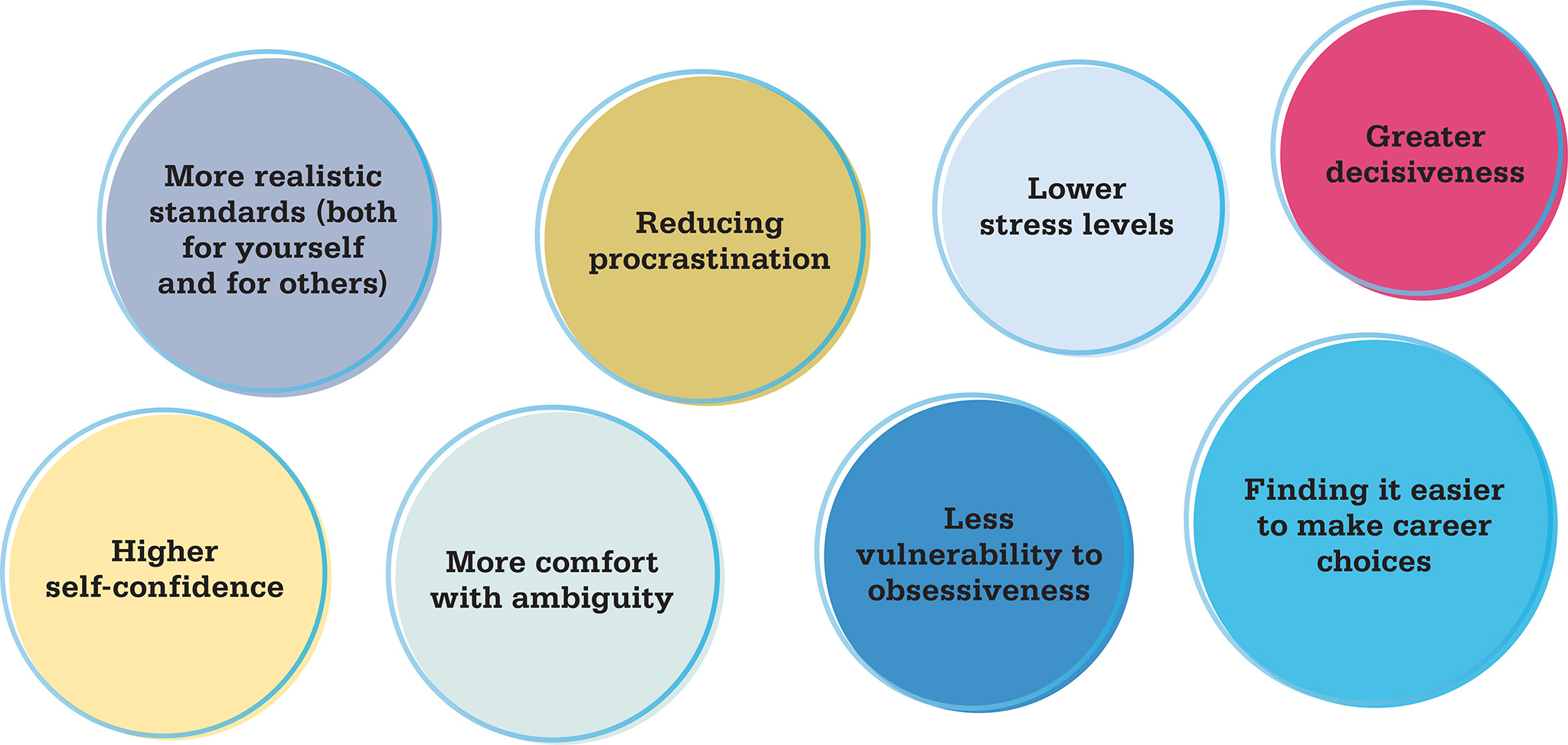
If you’re set on success, you’re likely to have high standards. This can be a good thing, but if you’re afraid to be anything less than perfect, those standards may end up being more of a hindrance than a help.
Does everything have to be exactly right before it’s acceptable to you? Do you struggle to forgive yourself for small mistakes and flaws? While we might think that success means being the best we can be, being set on perfection can actually undermine our performance.
The origins of perfectionism
Why are some of us so worried about getting everything right? A series of studies in the early 2000s found that one factor was our upbringing. People raised by authoritative parents—who set and enforced reasonable rules, but were open to their children’s feelings—tend to be comfortable with things being “good enough.” People raised by authoritarian parents, on the other hand—who enforced rules rigidly, and emphasized and rewarded obedience—experience a more anxious childhood and are more likely to become adults afraid of making mistakes. There are two types of perfectionism: “adaptive,” which works for the situation, and “maladaptive,” which undermines us. Children of authoritarian parents are affected by both types.
Our childhoods are not the whole story, of course: some of us are born more worried than others, and life experiences influence us, too. Whatever the cause, studies show that perfectionism doesn’t help us with our strategies for success.

Undermining yourself
When faced with a problem, we need a solution. The trouble with perfectionism is that it can make us worse at finding it. Numerous studies have found that perfectionists are less proactive when faced with stress. People whose standards are high but realistic tend to engage in “active coping”—they try to deal with the problem or reduce its impact. Perfectionists who are ruled by a fear of mistakes, on the other hand, tend to resort to “avoidant coping”—trying to ignore the problem or deny its impact. As a result, their problems are more likely to persist.
What can I do about it?
If you are feeling under pressure to be perfect, try to find the root cause (see “Where does the pressure come from?,”). Also, keep in mind the following pieces of advice:
- Avoid black-and-white thinking: between “perfect” and “terrible” there’s a lot of middle ground.
- Decisions aren’t irreversible. You can leave a job you don’t like, or change a project or plan that isn’t working.
- Change your point of comparison. If you compare an adequate solution to the idea of a “perfect” one, you may find yourself unable to act. Instead, compare your adequate solution to having no solution at all.
The adage “nobody’s perfect” is true. Instead of being a failure, it turns out that being “good enough” can in fact be the most efficient way to get ahead.
 avoiding Perfectionist pitfalls
avoiding Perfectionist pitfalls
Maladaptive perfectionism, which means being unable to tolerate even minor flaws, can lead to a host of problems. Developing a more forgiving approach creates several advantages:

Where does the pressure come from?
According to a 2014 Canadian study, we can define perfectionism as a combination of two basic factors—stress from social pressure, and stress from the pressure we place on ourselves. If you tend to be hard on yourself, it can be helpful to ask where the pressure is coming from: that way, you have a clearer picture of what areas in your life might benefit from a more tolerant attitude.

